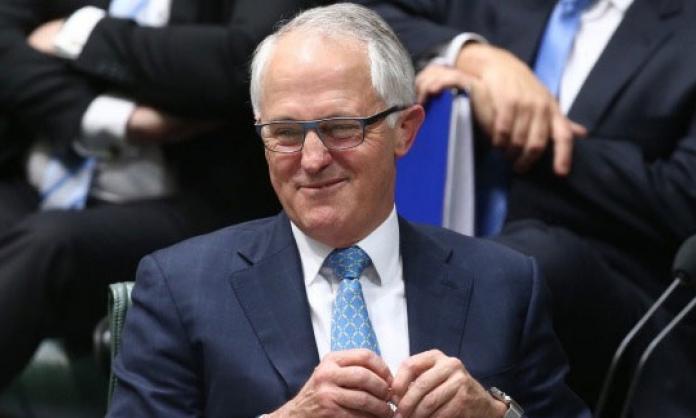The capitalist class has made up its mind: Malcolm’s the man.
From the Sydney Morning Herald to the Herald Sun, from the Business Council to the lobbyists for renewable energy, Malcolm Turnbull’s election as Liberal leader has been greeted with effusive praise.
Business chiefs are described as being “ecstatic”, “enthusiastic” and “overjoyed” about the new prime minister. “A sense of relief” and “excitement” have swept boardrooms. “High expectations” are widespread. At last, there really is a prospect of “grown up government” under Turnbull.
Abbott’s failure
The bosses had had high hopes that Abbott would be able to push through their “reform agenda” after his election in 2013. They hoped that the Coalition could use the post-election honeymoon to ram through changes – to end “the age of entitlement”, to tackle the “burden” of the ageing population.
Business hopes were dashed as public revulsion at the 2014 Budget, combined with the ridicule heaped on the prime minister for his various idiocies – the knighthoods, the attacks on the ABC, the winking at radio interviewers, the obsession with the culture wars – fatally wounded the government. Abbott was incapable of going on the offensive on the questions that really mattered to the ruling class.
In the context of two years of sinking consumer confidence, a sharp slowdown in China and falling commodity prices, the bosses were in despair that the government of their choice appeared to be sleep walking towards defeat at the next federal election.
Turnbull’s ascension has changed all that. Business chiefs now hope that Australia has a prime minister who can prosecute the capitalist agenda successfully where Abbott and Hockey failed.
Hopes for Turnbull
The bosses anticipate “a more sophisticated and positive debate about economic challenges and opportunities as well as the long term economic reforms necessary to address them” under Turnbull, as the Financial Review’s Jennifer Hewett explained.
Turnbull’s great attraction is his assumed ability to get the public to eat a shit sandwich. As the Financial Review’s Christopher Joye put it: “At a precarious economic juncture when the lucky country desperately needs to be convinced of the case for tough reform, this son of a publican, possessed of peerless talent, could be the perfect man for the job”.
We know very well what this “tough reform” might involve. The business chiefs are already laying it out – a boost to the GST, lower company taxes, cuts to penalty rates, still tougher anti-union laws, an end to restrictions on media ownership and more infrastructure spending to oil the wheels of commerce and industry. This is what they mean by “vision”.
Business also reckons that “stability” in Canberra will boost consumer confidence and get people spending, which will in turn lift investment. How people are meant to do this when the threat of cuts to their wages and increased prices of basic goods and services looms large over them is not explained.
It’s not just that Turnbull is the man to get the job done. Business is also relieved that the Liberals can field a leader at the next election who has a fighting chance of beating Labor.
They’re not worried that Shorten is an antipodean Jeremy Corbyn; he is just seen as too close to the unions to be fully reliable. He is speaking out of both sides of his mouth around the China free trade agreement, and that worries them. Support for Turnbull, however, is a no-brainer.
They look at Turnbull and like what they see – the second richest man in parliament, former managing director of Goldman Sachs in Australia, someone who is utterly committed to the measures tabled in the 2014 Budget which, as Turnbull told Alan Jones last year, he supported “unreservedly and wholeheartedly”.
An extensive property portfolio, hooked into Sydney’s business executive circles and with a track record favouring big business during his stints as environment and communications minister, Turnbull’s one of us, businessmen and women tell each other over drinks in the executive suites.
And when Turnbull told the press conference on the night of his election, “This will be a thoroughly liberal government committed to freedom, the individual and the market”, they knew that it is their freedom and their individual rights to which Turnbull referred, not those of trade unions or the working class which they exploit every day.
Fawning liberals
Acclaim has come not just from the usual suspects – the Liberals’ natural born constituency in the boardrooms – but also from media outlets such as Fairfax and the ABC, which have spent months assailing Abbott for his political ineptitude.
From a prime minister who couldn’t get much beyond “Coal is good for humanity” to one who burbles on about “digital disruption”, “volatility”, “agility” and “innovation” in his first press conference as leader, these outlets see a stunning transformation. We won’t have to apologise for our leader next time we travel overseas, they think.
Rather like their disdain for US president George W. Bush a decade ago, their aversion to Abbott was driven more by their scorn for his seeming stupidity than for his policies. Abbott’s great crime was that by knighting Prince Philip he weakened the government’s ability to deliver for business.
Now that the commentators have got a Liberal prime minister who knows how to use three syllable words and who can extend his answers to media interviews beyond “We stopped the boats”, they are beside themselves in their admiration, just as they were for Obama in 2009.
For all the differences within the ruling class and their in-house ideologists, and whatever their squabbles, they are all united in their appreciation of a prime minister who appears, to them, to have the skills to push through an agenda for the 1 percent without arousing destabilising opposition.
They say that you can tell a lot about someone by their friends. That Australia’s biggest exploiters are lining up to lavish praise on Malcolm Turnbull should tell us everything we need to know about what we can expect from the Turnbull government.









